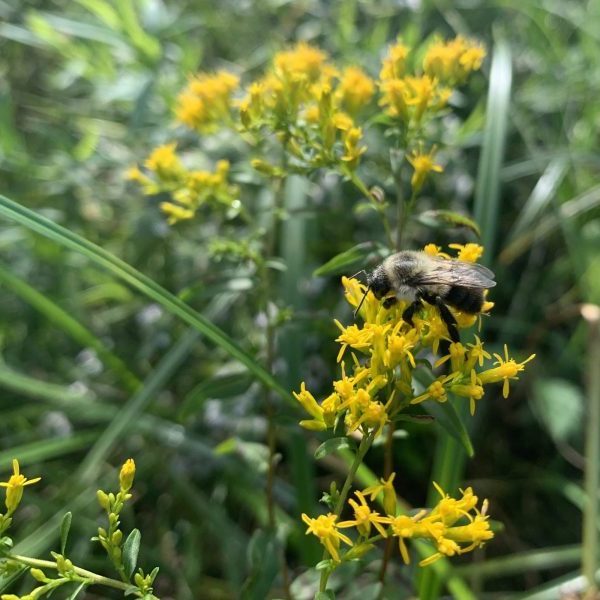
The Birds and Bees Protection Act was passed earlier this summer by our legislature in Albany to limit the use of neonicotinoid pesticides across New York. This bill is projected to eliminate 80%-90% of the neonicotinoids entering New York’s environment every year.
Neonicotinoid pesticides, also known as neonics, are the most commonly used insecticides in the country and cause a wide range of environmental harm. The newly passed bill bans the application of neonics in lawns and gardens and to coat the seeds of corn, soybean, and wheat. While the E.U. has banned neonicotinoids as far back as 2013 and Canada has imposed restrictions, neonics are largely unregulated in the U.S. NY state is now taking the first step with the Birds and Bees Protection Act to protect pollinators and clean water from the harmful impacts of neonicotinoids.
Neonic pesticides are highly toxic to invertebrates, attacking the nervous system and causing severe harm and death. Neonics are sprayed onto crops and garden plants, drenched onto soil, or coated onto seeds to kill pests. When absorbed they spread throughout the whole plant, affecting even pollen and nectar and contaminating nearby soil. Even months and years after these insecticides are applied, pollinators continue to be unwittingly poisoned by these toxic chemicals.
Neonic pesticides threaten clean water and can be transported by runoff far from where they are applied. Because neonics are highly soluble in water, it is estimated that only 5% of neonic coatings on seeds are absorbed by the plant while 95% of the pesticide volume is washed into soil and groundwater. USGS data from 2017 found the neonic chemical imidacloprid in 3 out of 10 groundwater samples on Long Island. There are growing concerns about the effects of neonics on human health, including neurological toxicity.
The EPA recently found that neonicotinoids would adversely affect over two thirds of the endangered and threatened species and over half of critical habitats it investigated, with severe effects jeopardizing survival and recovery in the wild of about 10% of those endangered species. This includes many aquatic species that can be affected by neonic pesticides entering our waterways. Learn more about the harmful impacts of pesticides on Beachapedia.
Our Chapter is happy to see the NY State Legislature take this positive step to reduce the burden of poisonous chemicals that are harming our water and wildlife in this state. We can all do our part to protect clean water and healthy pollinators and wildlife at home in our own yards. Take our Pesticide-free pledge and explore non-toxic pest-control options. Discover how our chapter is promoting sustainable landscaping practices that support clean water, native plants and pollinators through the Ocean Friendly Gardens program. We are always looking for volunteers to help lend a hand!
